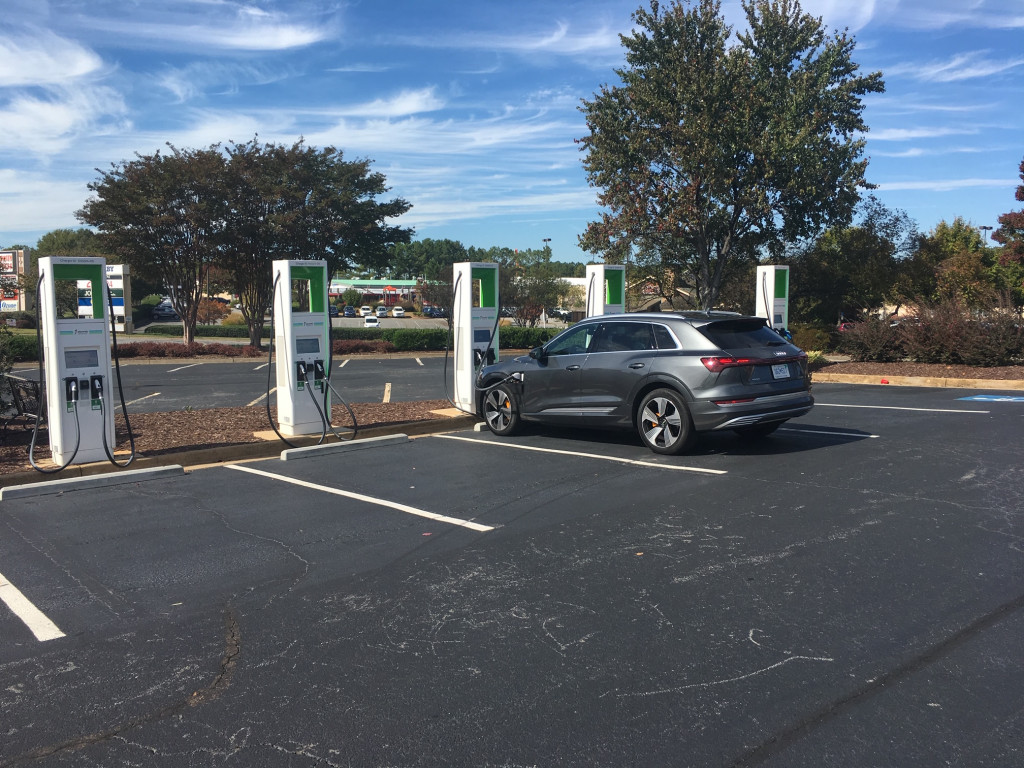While the current Presidential administration remains hostile to nearly any effort to reduce carbon emissions, two members of Congress have introduced a bill to expand electric-car charging infrastructure.
Called the Electric Vehicle Freedom Act, the bill calls for the construction of a network of fast-charging stations along major highways within five years. It was jointly unveiled by Representative Alexandria Ocasio-Cortez (D-NY), and Rep. Andy Levin (D-MI). Levin is based in Warren, Michigan, home of the General Motors Technical Center, the automaker’s research and development hub.
In addition to encouraging greater use of electric cars, the Electric Vehicle Freedom Act is intended to provide economic stimulation. Construction contracts will include “robust Buy America and prevailing wage requirements,” according to a press release from Levin’s office, with the aim of creating good-paying jobs.
The bill also calls for stations to be usable by all electric cars regardless of charging standard, and to “keep up with new technology.”
But it’s unclear if this legislation will address the needs of urban residents, who tend to live in apartments and condominiums and thus have fewer places to charge.
It’s also unlikely Democrats will be able to muster any Republican support to get the bill passed, however. In the meantime, the national charging network is steadily expanding without direct Congressional aid.
Tesla owners already benefit from an expansive network of Supercharger fast-charging stations, and significant funding from the Volkswagen diesel-emissions settlement has been poured into the Electrify America network.

E-Tron at Electrify America station, Marietta GA
Electrify America recently opened its 400th charging station, has permits for an additional 100 stations, and a further 150 stations in development. The Volkswagen-funded network lags behind Tesla, but has made impressive progress in just 20 months compared to Tesla’s eight years of buildup.
It’s also worth noting the contributions of other private charging networks—such as ChargePoint and EVgo—and automakers like Nissan.
Even General Motors—long reticent to invest in charging infrastructure—is getting in on the act.
In 2019 May, GM announced a deal with construction giant Bechtel to build thousands of charging stations across the United States, both along interstates and in urban areas. GM hasn’t disclosed many specifics on the project, but the automaker has several new electric models in development that would benefit from expanded infrastructure.
This isn’t the first the time the federal government has tried to spur development of charging infrastructure. In 2016, the Obama Administration said it would offer $4.5 billion in loan guarantees to projects that would expand charging infrastructure. It’s hard to imagine the Trump Administration proposing anything similar.